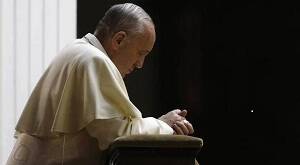As I mentioned last week, I've lately been making my way through Jim Manney's A Simple Life-Changing Prayer: Discovering the Power of St. Ignatius Loyola's Examen (Loyola Press). It is a brief but substantive primer on Ignatian prayer and spirituality, ideal for personal reading or for reading groups. It's also accessible for students.
Manney's book has provided a nice refresher for me on some of the topics I know well but can never read about enough. Here is Manney discussing the Ignatian approach to freedom and desire:
We pray for grace. We pray to know. The third thing we pray for is to be free—"to rid myself" of my sins. Sin in the Ignatian perspective includes the whole panoply of ideas, dreams, desires, longings, and hungers that keep us from becoming the kind of people we were meant to be. Ignatius called them "disordered attachments." They are desires that are literally "disordered--out of order, out of whack. A reasonable desire to make money becomes raging greed. A yearning for love becomes riotous lust. Disordered attachments are priorities gone wrong.Ignatius's program for spiritual maturity is an effort to rid oneself of these disordered attachments. Once free, we can answer a single question: What do I really want? That is, when you shed your fears and resentments, when you disentangle yourself from other people's ideas of what constitutes "the good life," when you get free of bogus promises and spurious dreams, what do you really want? Ignatius believed that when we know the answer to that question, we will know what God wants too.








